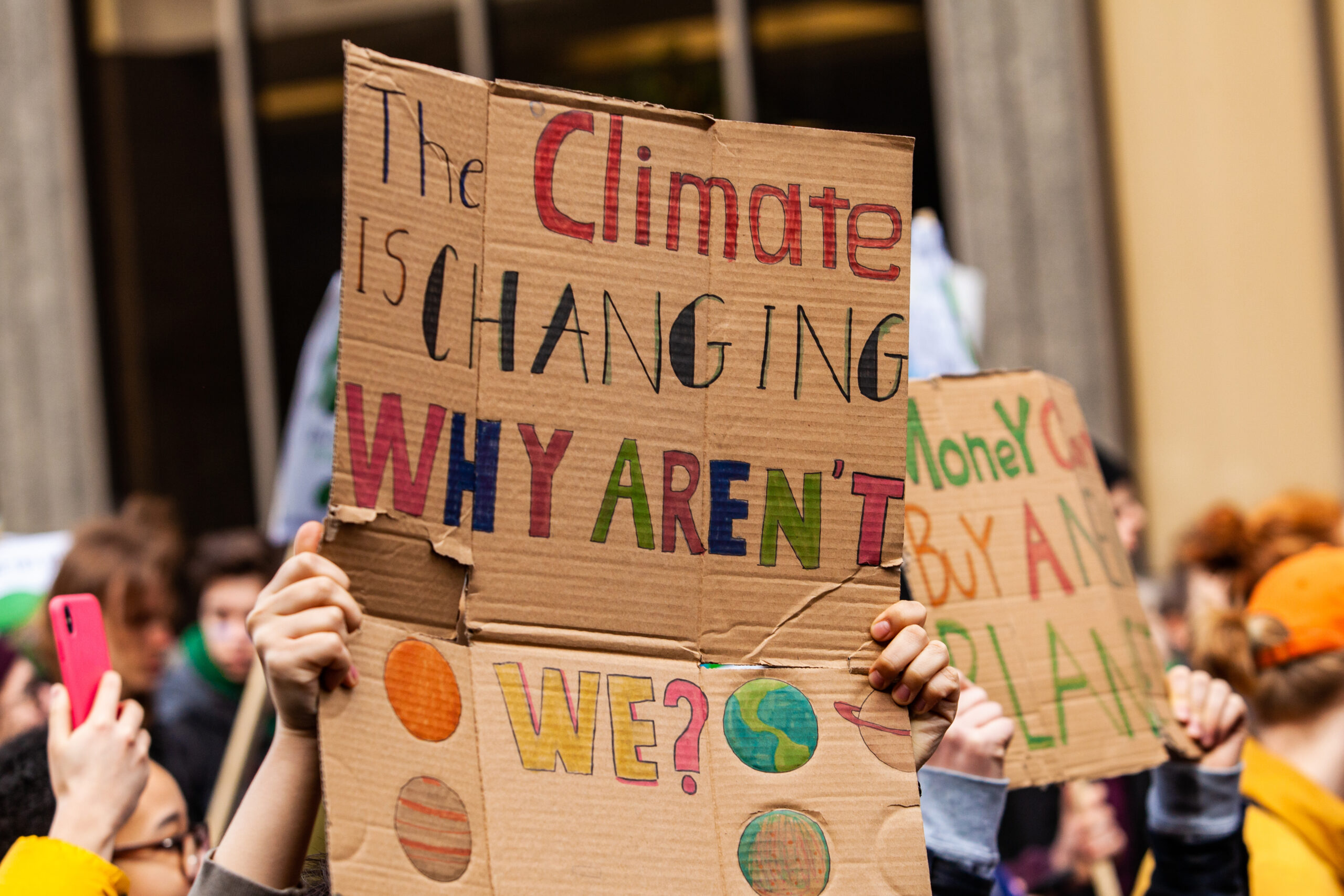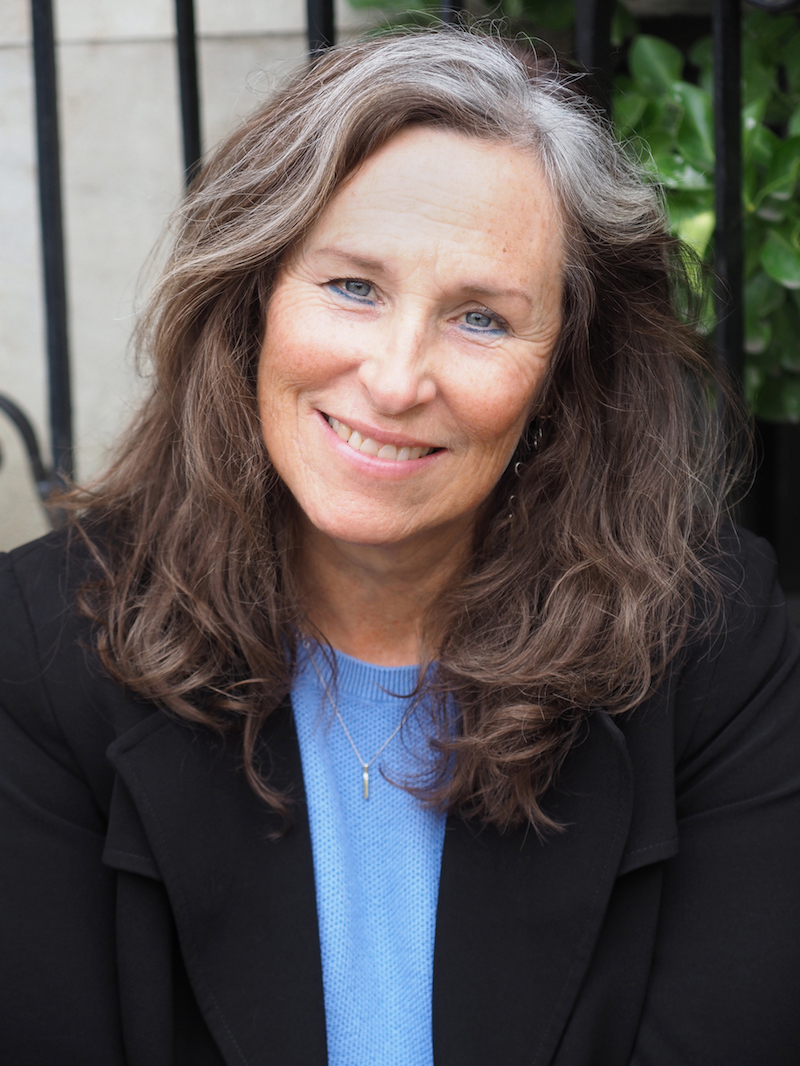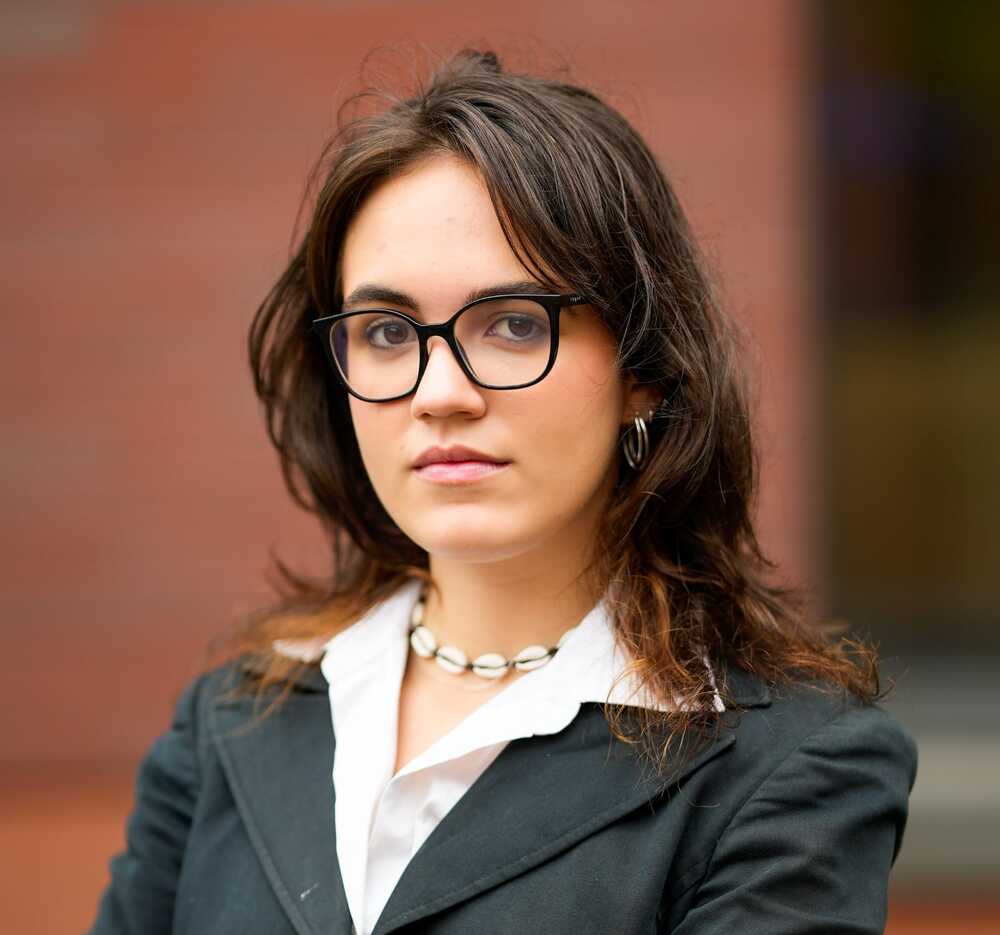What Drives Gen Z Climate Action? Penn Researchers Investigate
By Elea Castiglione

Elea Castiglione reports on how Penn researchers are uncovering what transforms distress into climate action for Gen Z. Senior Fellow Katharine Staley, Postdoctoral Fellow Alyssa Sinclair, and junior Pètra de Beer explore climate engagement across racial and ethnic groups, test effective communication strategies, and reveal what truly motivates young people to take action.
Research continues to show that Gen Z, currently aged 13 to 28, is experiencing pervasive anxiety surrounding the climate crisis. A 2021 study of 10,000 16-25 year olds found that 60% of Gen Zers described themselves as “very worried” about the climate, and half reported that this anxiety impacted their day-to-day functioning.
But climate anxiety can also drive action. A 2024 study found that anxiety about climate issues was associated with greater climate engagement in the U.S. Another study found that, specifically for young people, collective action can help alleviate climate anxiety.
At Penn, researchers are exploring who is impacted most by climate distress and what motivates people of all ages to take action on climate issues.
Senior Fellow Dr. Katharine Staley’s work addresses research gaps in the study of climate distress among young people of color in the U.S.
Dr. Katharine Staley, a Senior Fellow at the Penn Center for Science, Sustainability, and the Media (PCSSM), researches anxiety, despair, and other psychological impacts of climate change among adolescents and young adults. Dr. Staley became interested in climate distress as a result of working clinically with college and graduate students in a large university student counseling center at Penn State University. She observed firsthand rising rates of anxiety and depression among students, a trend replicated across the country at college and university counseling centers and reflected in national surveys. According to Staley, these rising rates of Gen Z distress were clear prior to COVID, but were exacerbated by the pandemic. As she worked with students, Staley became increasingly interested in what was driving their distress. Both quantitative data and her own interviews with Gen Zers revealed that climate distress was one of the driving factors.

“In interviews and focus groups with small groups of young people, I hear over and over again about their distress—how it scares them, makes them sad, and feel a sense of dread about the future,” Staley said. “Their concerns are real, and it’s heartbreaking to hear them talk about their fears, their anger, and their grief over what is being lost because of climate change,” she continued. While it’s clear that Gen Z as a group is distressed, “we don’t know much about the nuances within this large and diverse group of young people.”
Staley (pictured, left) explained that there is some evidence suggesting that climate distress is associated with disengagement from taking pro-environmental actions. “We need Gen Z to be engaged in taking positive actions around climate change,” she said. “It’s alarming because they are an incredibly creative and diverse generation, and we need their energy, their ideas, and their commitment–alongside older generations to tackle this problem,” Staley continued.
In a 2024 study, Staley, along with PCSSM Associate Director Heather Kostick, surveyed a diverse group of adult Gen Zers to better understand their feelings toward climate change, their sources of information, and whether they had learned about climate change in school. Few studies have focused specifically on climate distress among people of color, so Staley and Kostick designed their study to help fill this significant research gap. The study surveyed the three largest racial/ethnic groups in the U.S., and includes equal numbers of white, Black, and Hispanic Gen Z respondents.
Preliminary findings from the survey, which included almost 1,000 respondents across the country, found that across all three racial/ethnic groups, at least 40% (and as high as 70%) of Gen Z respondents reported experiencing a wide range of negative emotions, like “dread” and “sadness” when they thought, read, and heard about climate change. However, while distress was high across all three groups, the data showed that the white Gen Z respondents reported the highest percentages of distress. Staley presented results from this study at the American Geophysical Union’s annual conference last December, and is currently working on a paper with further results and possible explanations for the study’s findings.
According to Staley, this work is part of an emerging field in which Penn is well-positioned to lead.
Postdoctoral Fellow Alyssa Sinclair’s research on activating climate action

Alyssa Sinclair (pictured, left), a Postdoctoral Fellow in the Communication Neuroscience Lab and Joan Bossert Postdoctoral Fellow at the Annenberg Public Policy Center, along with a group of researchers, is developing tools for climate change communication by studying what activates people to take action on climate change in daily life.
Her climate-related research addresses two key questions: What are the most effective strategies to motivate people to take action to mitigate climate change? What factors shape how people engage with news about climate change?
In one study, the research team conducted an “intervention tournament” to compare 17 psychological interventions in a sample of 7,624 adults to determine the most effective activators of climate action. Preliminary findings from the study suggest that the most effective interventions to motivate action involved “guiding people to think about the future, especially future scenarios that involved themselves or close others,” according to the published paper. Sinclair also found that the most effective interventions for motivating people to share news articles and petitions about climate change involved prompting people to determine how climate change was relevant to themselves or people they knew.
In another study, Sinclair found that while the “Crisis” framing of news about climate change motivated people to read, share, and donate, the alternative “Opportunity” framing, which emphasized progress toward future goals, had positive effects on emotions, engagement, and memory. The negative “Crisis” framing had the strongest effect on immediate engagement, as measured by intentions to read and share information, as well as actual donations that participants made to charities related to the news stories. However, the positive and forward-looking “Opportunity” framing also increased engagement relative to more neutral versions of the headlines, and actually enhanced participants’ memory of news content the next day. A separate analysis of over 25,000 news articles on social media also found that both framing strategies increased engagement, as measured by real-world liking and sharing of news about climate change.
Sinclair explained that there are tradeoffs to how we talk about climate issues: “There are benefits to imagining hopeful or positive future outcomes, and there are also benefits to thinking about negative (but preventable) future outcomes. Choosing the right communication strategy for your goals can maximize impact.”
She encouraged people to engage with climate issues, both for personal and collective benefit. “If you join and start volunteering for an organization that aims to take action… you might make new friends. You might make connections with like-minded people. You might feel good because you’re acting on your values and developing your sense of identity and purpose in life,” Sinclair explained. “There are a lot of benefits that we can get from engaging in these behaviors, either individual or collective, that can be good for us personally, strengthen our connections with other people, and also benefit the environment,” she continued.
“If you join an organization or start or share a petition, all of those actions are going to reach a lot of other people and can have a cumulative effect over time, like rolling a snowball downhill. So even though your part might be relatively small, you can be part of a much bigger network,” Sinclair said.
College Junior Pètra de Beer researches what motivates young people to engage with climate action

Pètra de Beer (pictured, left), a junior in the College of Arts & Sciences studying Political Science and Cognitive Science, spent the summer analyzing survey data collected by the Communication Neuroscience Lab about climate engagement. As a lifelong climate activist, she was “curious about what drives young engagement in climate action, and how we impact that.”
When comparing Gen Z survey (aged 18-25) respondents to older respondents, de Beer found that Gen Z had significantly lower levels of current climate action engagement than older generations. However, Gen Z respondents had significantly higher future intentions for climate action, while older generations had fewer intentions to increase climate action above current levels in the future.
Further analysis found that young people were likely to engage in the present with climate action based on how personally impactful and easy it was for them to be active, and were less influenced by factors like environmental impact or social approval.
One of de Beer’s key findings was that for Gen Z, determination was the primary predictor of current climate action, as opposed to other emotions like anger. She notes that while “climate anxiety is incredibly prevalent amongst young people and it dominates a lot of climate messaging,” determination actually has a greater impact on climate behavior, and messaging can be adjusted to also focus on approach-oriented emotions rather than only highlighting negative emotions.
Reflecting on her research, de Beer said, “my data shows that young people primarily care about the personal impact of the climate action they’re taking.” She continued, “I think it’s important for us to make things more personally impactful for young people. That’s what’s going to drive them to create change.”
“When we start characterizing young people who are engaged as determined, empowering individuals, [it] makes things more positive,” de Beer concluded.
De Beer, who is the Policy Coordination Focal Point of the Global Steering Committee of the Children and Youth Major Group to the United Nations Environment Programme (UNEP), is compiling these findings into a workshop that she is planning to present to prepare young people on climate communication on the road to the seventh United Nations Environmental Assembly.
By filling research gaps on climate distress and discovering what drives action, Penn researchers are leaders in the emerging field of study on psychological reactions to climate change and drivers of climate action. Their findings offer evidence-based pathways for empowering young people to engage with and champion climate issues.
Elea Castiglione is an undergraduate student studying philosophy, politics, & economics with a concentration in public policy and governance, and minors in sustainability and environmental management and fine arts.
